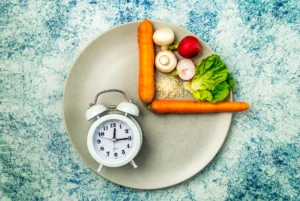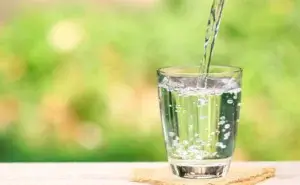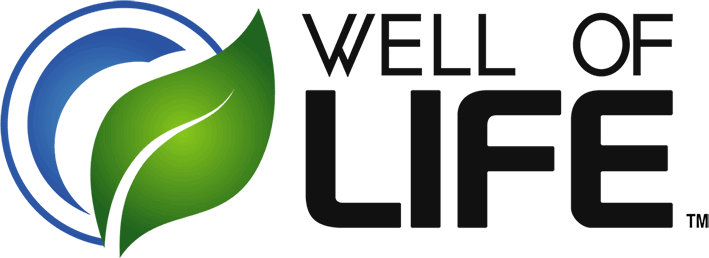
The Hidden Power of Fasting Intermittent: Unlock Natural Healing
Fasting intermittently is a popular way to improve health and wellness. It involves alternating between eating and fasting periods, allowing flexibility for those who want

In the fast-paced rhythm of our daily lives, it’s easy to overlook the silent heroes that play a crucial role in our overall well-being—electrolytes. These essential minerals, including sodium, potassium, calcium, magnesium, chloride, and phosphate, are the unsung champions responsible for maintaining proper hydration, supporting muscle function, and ensuring the smooth operation of countless bodily processes. Embracing a diet rich in electrolyte foods becomes paramount to replenish these vital minerals and sustain optimal health.
Welcome to “Electrolyte Foods to Revitalize: A Holistic Approach to Wellness,” where we embark on a journey into the world of natural, nutrient-packed options that go beyond the neon-colored sports drinks. In this exploration, we’ll unveil the delicious and wholesome foods that can help you maintain a healthy electrolyte balance, invigorating your body and mind.
Hydration is often associated with water intake, but the truth is, the story is much more complex. Electrolytes act as conductors, facilitating the flow of electrical signals that keep our heart beating, muscles contracting, and nerves firing. Without them, our bodies would struggle to maintain the delicate balance required for optimal performance.
So, whether you’re a fitness enthusiast looking to enhance your workout recovery or someone simply seeking to elevate your daily energy levels, this is for you. We’ll explore the diverse array of foods that can naturally replenish your electrolyte stores. Let’s dive into the vibrant world of electrolyte-rich foods that have the power to recharge your day, one delicious bite at a time.

Electrolytes are essential minerals that carry an electric charge and play a crucial role in various physiological functions within the human body. These minerals are present in bodily fluids, tissues, and cells. Electrolytes maintain proper fluid balance, conduct electrical impulses, and support various physiological processes.
Here are key electrolytes and their roles:
Sodium (Na+)
Sodium is the primary electrolyte in extracellular fluid and plays a critical role in regulating fluid balance, blood pressure, and nerve function. It is essential for muscle contraction and nerve impulse transmission.
Potassium (K+)
Potassium is the primary electrolyte in intracellular fluid. It is crucial for maintaining a proper balance of fluids inside and outside cells, supporting nerve function, and regulating muscle contractions, including the heart.
Calcium (Ca2+)
Calcium controls muscle contractions, blood clotting, and the transmission of nerve signals. It is a key component of bones and teeth and plays a role in maintaining the structural integrity of cell membranes.
Magnesium (Mg2+)
Magnesium is essential for muscle and nerve function, energy production, and bone health. It is present in over 300 enzymatic reactions in the body and contributes to the regulation of electrolyte balance.
Chloride (Cl-)
Chloride, often found in the form of sodium chloride (table salt), helps maintain electrolyte balance and helps to control the body’s acid-base balance. It is a component of stomach acid, aiding in digestion.
Phosphate (HPO4^2-)
Phosphate plays a role in energy metabolism, including the storage and release of energy in cells. It is a structural component of DNA, RNA, and ATP (adenosine triphosphate).
Bicarbonate (HCO3-)
Bicarbonate helps regulate the body’s acid-base balance and maintains blood pH. It acts as a buffer, neutralizing excess acids or bases to prevent extreme changes in pH.
Maintaining a healthy fluid and electrolyte balance is crucial for the proper functioning of the body’s physiological processes. Electrolytes, including sodium, potassium, calcium, magnesium, chloride, phosphate, and bicarbonate, play essential roles in nerve function, muscle contraction, fluid balance, and other vital functions. Here are some key practices to promote a healthy electrolyte balance:
Adequate hydration is fundamental for maintaining electrolyte balance. Water helps transport and regulate electrolytes within the body. Aim to drink enough water throughout the day, especially during physical activity or in hot weather.

Include a variety of foods rich in essential electrolytes in your diet, such as fruits, vegetables, whole grains, dairy products, nuts, seeds, and lean proteins. Consuming a diverse range of nutrient-dense foods ensures a well-rounded intake of electrolytes.
While sodium is an essential electrolyte, excessive sodium intake can contribute to imbalances and increase the risk of high blood pressure. Be mindful of processed and packaged foods, which often contain high levels of sodium. Choose fresh, whole foods, and limit added salt in your diet.
Potassium is vital for maintaining a healthy heart, supporting muscle function, and regulating fluid balance. Include potassium-rich foods such as bananas, oranges, spinach, potatoes, sweet potatoes, and avocados in your diet.

Calcium is crucial for bone health, muscle function, and nerve transmission. Incorporate dairy products, leafy green vegetables, fortified plant-based milk, and nuts into your diet to ensure an adequate intake of calcium.
Magnesium is present in numerous enzymatic reactions in the body. Foods like nuts, seeds, whole grains, leafy green vegetables, and legumes are good sources of magnesium.
In certain situations, such as intense physical activity or heat, consuming electrolyte-rich beverages may be beneficial to help replenish lost minerals through sweat. However, be cautious with commercial sports drinks, as they may contain added sugars and calories.
Both caffeine and alcohol can contribute to dehydration. While moderate consumption is generally acceptable, excessive intake can disrupt electrolyte balance. Balance your intake with adequate water consumption.
Some medical conditions, medications, and treatments can affect electrolyte balance. If you have specific health concerns or are taking medications, consult with your healthcare provider for personalized guidance.
Pay attention to your body’s signals. If you experience symptoms of electrolyte imbalance, such as muscle cramps, weakness, fatigue, or irregular heartbeats, seek medical attention.
Maintaining a healthy electrolyte balance is about adopting a balanced and varied approach to nutrition, staying hydrated, and being mindful of lifestyle choices. If you have specific health concerns or conditions, it’s advisable to consult with healthcare professionals or registered dietitians for personalized advice.
Electrolytes play a crucial role in maintaining various physiological functions in the body. An imbalance in electrolyte levels, whether it’s an excess or a deficiency of certain minerals, can lead to a range of symptoms. It’s important to be aware of these symptoms, as electrolyte imbalances can have serious consequences if left untreated.
Here are common symptoms associated with electrolyte imbalances:
Electrolyte imbalances, particularly low levels of potassium, magnesium, or calcium, can contribute to muscle weakness, cramps, or spasms that can affect nerve and muscle function.
Inadequate electrolyte levels may lead to feelings of fatigue, weakness, and lethargy. This can affect overall energy levels and physical performance.

Abnormal levels of potassium, calcium, or sodium can disrupt the electrical signals that regulate heart rhythm, leading to palpitations or irregular heartbeats.
Electrolyte imbalances, particularly disruptions in sodium and potassium levels, can contribute to nausea and vomiting.

Low levels of sodium or potassium can affect blood pressure and fluid balance, potentially leading to dizziness or light-headedness.
Electrolyte imbalances, especially in sodium levels, can impact brain function and lead to confusion, difficulty concentrating, or changes in mental status.
Severe imbalances in electrolytes, such as a rapid decrease in sodium levels (hyponatremia), can lead to seizures.
Dehydration, often associated with electrolyte imbalances, can cause an increased feeling of thirst and a dry mouth.
Electrolyte imbalances can affect kidney function and lead to changes in urine output or frequency.
Disruptions in sodium and water balance can contribute to swelling, especially in the legs, ankles, or other extremities.

Imbalances in electrolytes can lead to changes in bowel habits, including diarrhea or constipation.
It’s important to note that the symptoms of electrolyte imbalances can vary depending on the specific mineral affected and the severity of the imbalance. Additionally, certain medical conditions, medications, and lifestyle factors can contribute to electrolyte disturbances.
If you suspect that you have lost electrolytes, had an electrolyte imbalance, or experience persistent symptoms, it’s crucial to seek medical attention promptly. Healthcare professionals can perform blood tests to assess electrolyte levels and determine the appropriate course of treatment. Electrolyte imbalances may require interventions such as dietary adjustments, electrolyte supplementation, or medical treatments, depending on the underlying cause.
Maintaining a healthy balance of electrolytes is crucial for the proper functioning of the body. Including foods rich in electrolytes in your diet can help ensure that you get an adequate supply of minerals like sodium, potassium, calcium, magnesium, chloride, phosphate, and bicarbonate.
Here are some foods that are good sources of electrolytes:
Bananas are an excellent source of potassium, a key electrolyte important for nerve and muscle function. Other potassium-rich fruits include oranges, cantaloupe, and kiwi.

Vegetables like kale, spinach, collard greens, and Swiss chard provide calcium and magnesium, essential electrolytes for bone health and muscle function.

Almonds, sunflower seeds, and pumpkin seeds are good sources of magnesium and potassium, supporting muscle and nerve function.

Avocado is rich in potassium, contributing to electrolyte balance and overall heart health. The are also a great source of healthy fats to include in a balanced diet.

Sweet potatoes are a good source of potassium, and they also provide complex carbohydrates for sustained energy.

Coconut water is a natural hydrating beverage that contains potassium and a small amount of sodium, making it a good choice for replenishing electrolytes after exercise.

Tomatoes are rich in potassium and are a good addition to salads, sauces, and various dishes.

Watermelon is a hydrating fruit that provides magnesium and potassium, supporting hydration and electrolyte balance.

Broccoli is a nutrient-dense vegetable that provides calcium and magnesium, essential for bone health and muscle function.

Oranges and other citrus fruits are good sources of potassium and provide vitamin C, which is beneficial for the immune system.

Bell peppers, particularly the yellow and red varieties, are rich in potassium and other antioxidants.

Celery contains both sodium and potassium, making it a hydrating and electrolyte-balancing snack.

Remember that a well-balanced diet that includes a variety of nutrient-dense foods is essential for maintaining optimal electrolyte balance. In certain situations, such as intense physical activity or hot weather, replenishing electrolytes through foods and beverages becomes especially important.
In the grand finale of our exploration into the world of electrolyte-rich foods, we find ourselves at the intersection of culinary delight and nutritional wisdom. “Electrolyte Foods to Revitalize: A Holistic Approach to Wellness” has been more than a journey through the aisles of a grocery store or a stroll through the farmer’s market.
Beyond the confines of sports or electrolyte drinks and artificial supplements, we’ve uncovered a culinary universe brimming with alternatives that not only replenish electrolytes but also contribute to the intricate dance of our physiological well-being. Nature, it seems, has crafted a menu that not only tantalizes our taste buds but also caters to the nuanced needs of our bodies.
In the days ahead, let the vibrant hues of fruits and vegetables be a constant reminder of the life-giving energy they infuse into our being. Here’s to a life well-replenished, a body well-nourished, and a journey ahead filled with the boundless vitality that comes from honoring the profound connection between food and well-being. As we raise a metaphorical toast to the chapters ahead, may each bite be a celebration, and may each day be a flavorful journey of health and happiness.

Fasting intermittently is a popular way to improve health and wellness. It involves alternating between eating and fasting periods, allowing flexibility for those who want

Gluten-free lifestyles might seem intimidating, particularly if you’re just getting started. All sorts of tasty and healthy options that you may not have thought of

Basic Health for Men: A Gentle Guide for a Better Lifestyle Health for men is a topic that is often overlooked because there are more

The Power of A Digital Detox: Revitalizing Your Life A digital detox is needed now more than ever, as digital devices are our most valuable

The Role of Chlorine Dioxide in Holistic Healing: Alternative Therapies Chlorine dioxide (CDS), also known as the miracle solution, has been underestimated for many years.

A vertigo dizziness remedy can be difficult to find as vertigo can be an unsettling experience. This often leads to a spinning sensation and feeling


This website or its third-party tools use cookies, which are necessary for its functioning and required to achieve the purposes illustrated in the cookie policy. You accept the use of cookies by closing or dismissing this notice, by clicking a link or button or by continuing to browse otherwise.
3 thoughts on “Electrolyte Foods to Revitalize: A Holistic Approach to Wellness”
Thanks for lessons learned
thank you for all the information We appreciate YOU!
Very good